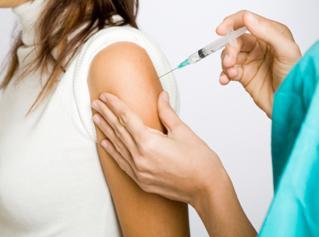The place to find all of the legal abortion clinics in the United Kingdom
Contraceptive methods
You will find all the information that you should know about contraceptive methods here. We tell you about the contraceptive methods that you need to know in order to find the most suitable for you.
Written by www.abortionclinicsinuk.co.uk in Contraceptives on the 15/07/2015
 Making contraceptives available to the poorest women
Making contraceptives available to the poorest women
In the past few days an agreement was signed between the Gates Foundation, the drug company Pfizer and the Children’s Investment Fund Foundation in an aim to provide this sexual health service to women who normally have no access in 69 of the world’s poorest countries. This technology was originally designed to be used for giving hepatitis B jabs in Indonesia, and now Burkina Faso is has been the first country that has used the technology to deliver contraception.
20 year-old Soré Néimatou has a boyfriend and wants to use contraception because she doesn’t want to get pregnant yet. She has never previously used or had access to contraceptives and is opting to use the new injection – Sayana Press.
"I don't want to get pregnant," she said. "I want to get married first."
The device comes pre-packaged and therefor there is no need for nurses or doctors to prepare a traditional syringe to administer the drug. All the health worker has to do is squeeze a plastic bubble and protects the woman for 3 months.
The design is called Uniject and removes all risk of dosing errors and spillages, nor can it be reused therefore completely removes the risk of needle-sharing infections.
As the device is so simple, it makes the training process for health workers much quicker which is a vital factor to take into consideration in developing countries and the device is seen as more acceptable by women in rural areas.
One healthworker said, "Normally for injections you have to put them in someone's bottom, or the top of their leg, but with this - you use the arm. That's an advantage for women living in the bush. Many women don't come forward for injections if they have to pull their dresses up - but this is more discreet."
Early trails have also reported that women experience less pain with this type of injection thatn conventional injections.
Source: www.abortionclinicsinuk.co.uk
- Normas de participación
- > Esta es la opinión de los internautas no de Clinicasabortos.mx
- > No se admiten insultos ni faltas de respeto
- > No esta permitido hacer comentarios contrarios a las leyes Mexicanas o injuriables
- > Clinicasabortos.mx se reserva el derecho a eliminar los comentarios que considere ofensivos o fuera de tema
Most popular FAQs
Questions by recent users
- I have missed my period but the pregnancy test is negative
- hello, am not sure but I think I might be pregnant as i had unprotected sex during my fertile days the test says negative but my tummy hasn't stopped hurting
- What if I get to the appointment and change my mind :/
- Hi I got all the symptoms for pregnancy but the pregnancy test shows negatives
- Is there anyway I can find out about a previous abortion I have had?






